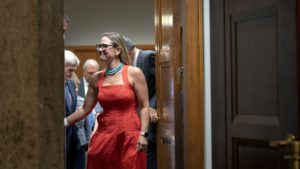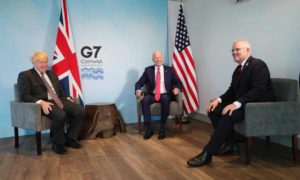
A few weeks ago, I stepped into an Uber in Los Angeles, California. We quickly hit our first red light. Somehow, this silence was the perfect justification for my driver to ask: “What are you?” “What?” I responded. Like most, I was hoping for a silent ride. “You know, like what ethnicity are you?” I told him I was Jewish. “You do look really Jewish. You guys control everything around here.”
What this man said was not an ipso facto anti-Semitism. It was not necessarily threatening. I did not fear for my life. In fact, if I was not cognizant of Jewish history, perhaps the comment would not even elicit any uneasiness.
But, I am aware of Jewish history. Subtly, poignantly and perhaps unknowingly he invoked a persistent anti-Semitic trope, that somehow we Jews wield immense power, playing the world as if it was one exhilarating chess game. In an ideal world, this anti-Semitic incident would not have occurred. Gratefully, the only injury I suffered are cheeks red with agitation and a mild headache.
If I was an Orthodox Jew in Crown Heights, Brooklyn, I may be pushed to the ground or chased with a tree branch.
If I was of the 11 Jews attending the Tree of Life synagogue services in Pittsburgh, Pennsylvania on October 27, 2018, perhaps my injury would be the obliteration of my body and soul. In New York City alone, anti-Semitic incidents have increased 22 percent from 2017 to 2018. And for the first two months of 2019, hate crimes increased a staggering 72 percent when compared to the same period in 2018. Most of these crimes were directed towards Jews.
That is why when Representative Ilhan Omar (D-Minn) told a Washington D.C. crowd on February 27, “I want to talk about the political influence in this country that says it is okay to push for allegiance to a foreign country,” I bristled, jolted into that state of peculiar unrest that has become increasingly common for me as I exist as Jew in the United States. This comment, insinuating that Jews possess dual loyalty, like several others critiquing America’s loyalty to Israel, very, unfortunately, invoke common anti-Semitic tropes.
The charge of anti-Semitism, just like the charge of any form of racism, must always be wielded with caution. It is not simply a negative characterization but one that gestures toward a deficit in both character and humanity. Its history is quite literally drenched with violence from the origin of the Jewish people until the present, from the Middle East to New York City.
This is precisely why the recurrence of comments employing from a representative in Congress arouses so visceral a reaction. Indeed, if this was an isolated invocation of an anti-Semitic trope, perhaps I would be more inclined to forgiveness.
When these comments persist and become a pattern in how Rep. Omar frames her criticism of the staunchly pro-Israel bend of American politics, I am left unsure of how I should characterize Rep. Omar.
At least, her rhetoric is callous. At its worst, it is malicious. Undoubtedly, there are individuals who, for various motives would characterize any criticism of Israel as anti-Semitic. This is troubling and antithetical to productive political discourse, and I would challenge these people with as much vigor as I now challenge Rep. Omar. However, this truth does not negate the flagrant anti-Semitic undertone of Rep. Omar’s comments. Many American Jews have been vocal and even hypervigilant about this sort of discourse because our history and our present precludes this forgetting. Every accusation of dual loyalty and gesture towards a Jewish conspiracy is a subtle but disconcerting jostle that reminds of us our precarity.
We must also not forget that Rep. Omar belongs to the progressive left, a movement that should, in fact, be the most sympathetic towards such microaggressions. That is precisely why I know that Rep. Omar can do better. In fact, she must if the progressive left genuinely aspires towards intersectionality.
Eve Passman



